Related Research Articles
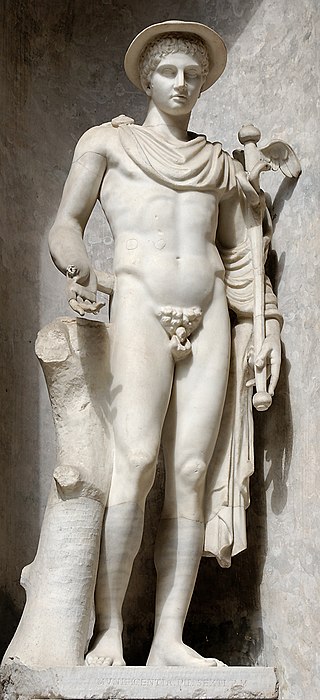
Hermes is an Olympian deity in ancient Greek religion and mythology considered the herald of the gods. He is also considered the protector of human heralds, travelers, thieves, merchants, and orators. He is able to move quickly and freely between the worlds of the mortal and the divine aided by his winged sandals. Hermes plays the role of the psychopomp or "soul guide"—a conductor of souls into the afterlife.
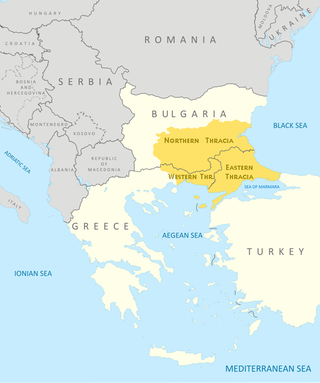
Thrace is a geographical and historical region in Southeast Europe. Bounded by the Balkan Mountains to the north, the Aegean Sea to the south, and the Black Sea to the east, it comprises present-day southeastern Bulgaria, northeastern Greece, and the European part of Turkey, roughly the Roman Province of Thrace. Lands also inhabited by ancient Thracians extended in the north to modern-day Northern Bulgaria and Romania and to the west into Macedonia.

Amphion and Zethus were, in ancient Greek mythology, the twin sons of Zeus by Antiope. They are important characters in one of the two founding myths of the city of Thebes, because they constructed the city's walls. Zethus or Amphion had a daughter who was called Neis (Νηίς), the Neitian gate at Thebes was believed to have derived its name from her.

In Greek mythology, Hermaphroditus or Hermaphroditos was a child of Aphrodite and Hermes. According to Ovid, he was born a remarkably handsome boy whom the naiad Salmacis attempted to rape and prayed to be united with forever. A god, in answer to her prayer, merged their two forms into one and transformed him into a hermaphrodite, he being considered the origin of the name. His name is compounded of his parents' names, Hermes and Aphrodite. He was one of the Erotes.
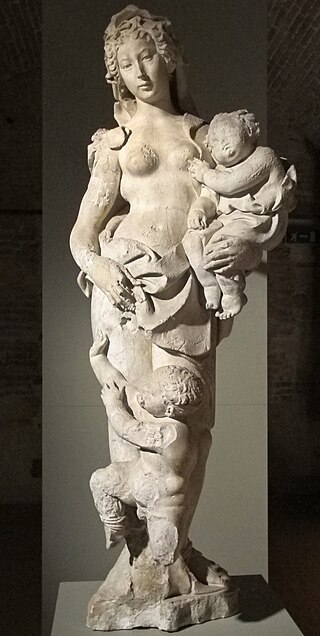
Acca Larentia or Acca Larentina was a mythical woman, later a goddess of fertility, in Roman mythology whose festival, the Larentalia, was celebrated on December 23.
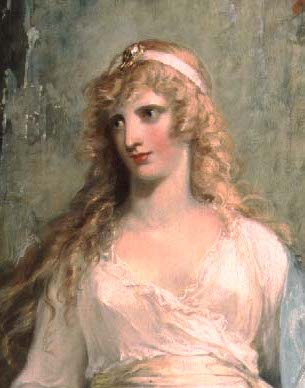
In Greek mythology, Calypso was a nymph who lived on the island of Ogygia, where, according to Homer's Odyssey, she detained Odysseus for seven years. She promised Odysseus immortality if he would stay with her, but Odysseus preferred to return home.

Alois Hitler was an Austrian civil servant in the customs service, and the father of Adolf Hitler, dictator of Germany from 1933 to 1945.

Maia, in ancient Greek religion and mythology, is one of the Pleiades and the mother of Hermes, one of the major Greek gods, by Zeus, the king of Olympus.
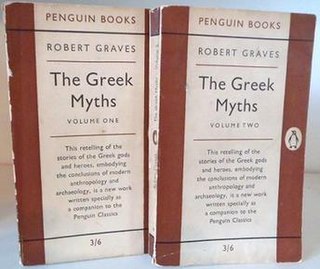
The Greek Myths (1955) is a mythography, a compendium of Greek mythology, with comments and analyses, by the poet and writer Robert Graves. Many editions of the book separate it into two volumes. Abridged editions of the work contain only the myths and leave out Graves's commentary.
Anna Magdalena Bach née Wilcke was a professional singer and the second wife of Johann Sebastian Bach.
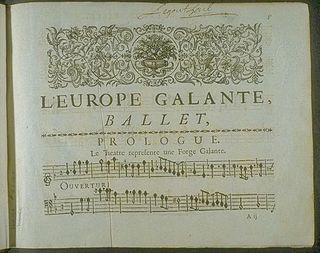
In music, galant refers to the style which was fashionable from the 1720s to the 1770s. This movement featured a return to simplicity and immediacy of appeal after the complexity of the late Baroque era. This meant simpler, more song-like melodies, decreased use of polyphony, short, periodic phrases, a reduced harmonic vocabulary emphasizing tonic and dominant, and a clear distinction between soloist and accompaniment. C. P. E. Bach and Daniel Gottlob Türk, who were among the most significant theorists of the late 18th century, contrasted the galant with the "learned" or "strict" styles. The German empfindsamer Stil, which seeks to express personal emotions and sensitivity, can be seen either as a closely related North-German dialect of the international galant style, or as contrasted with it, as between the music of Carl Philipp Emanuel Bach, a founder of both styles, and that of Johann Christian Bach, who carried the galant style further and was closer to classical.
German submarine U-859 was a Type IXD2 U-boat built for Nazi Germany's Kriegsmarine during World War II. She was one of a select number of U-boats to join Monsun Gruppe or Monsoon Group, which operated in the Far East alongside the Imperial Japanese Navy.

Argus or Argos Panoptes is a many-eyed giant in Greek mythology.
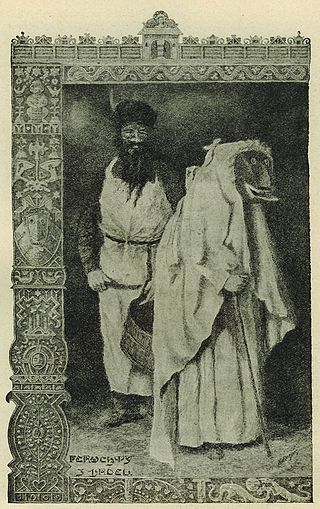
Perchta or Berchta, also commonly known as Percht and other variations, was once known as a goddess in Alpine paganism in the Upper German and Austrian regions of the Alps. Her name may mean "the bright one" and is probably related to the name Berchtentag, meaning the feast of the Epiphany. Eugen Mogk provides an alternative etymology, attributing the origin of the name Perchta to the Old High German verb pergan, meaning "hidden" or "covered".

"Frau Holle" is a German fairy tale collected by the Brothers Grimm in Children's and Household Tales in 1812. It is of Aarne-Thompson type 480.

Sit tibi terra levis is a Latin inscription used on funerary items from ancient Roman times onwards. The English language translation is approximately "May the earth rest lightly on you" or "May the ground be light to you"; the more literal, word by word, translation, is sit "may be", tibi "to you", terra "ground, soil", levis "light".

Ceto is a primordial sea goddess in Greek mythology, the daughter of Pontus and his mother, Gaia. As a mythological figure, she is considered to be one of the most ancient deities, and bore a host of monstrous children fathered by Phorcys, another child of Gaia and Pontus. The small Solar System body 65489 Ceto was named after her, and its satellite after Phorcys.

Catharina Elisabeth Goethe, born Catharina Elisabeth Textor, was the mother of German playwright and poet Johann Wolfgang von Goethe and his sister Cornelia Schlosser. She was also known by the nickname Frau Aja and the title Frau Rat.

Dorothea Christina von Aichelberg was the spouse of Prince Christian Charles of Schleswig-Holstein-Sonderburg-Plön-Norburg as Frau von Karlstein. Later, as a widow and mother of Frederick Charles, she stood for many years at the center of a succession dispute.
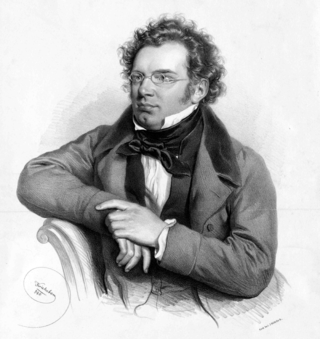
"Ständchen", D 889, is a lied for solo voice and piano by Franz Schubert, composed in July 1826 in the then village of Währing. It is a setting of the "Song" in act 2, scene 3 of Shakespeare's Cymbeline. The song was first published by Anton Diabelli in 1830, two years after the composer's death. The song in its original form is relatively short, and two further verses by Friedrich Reil were added to Diabelli's second edition of 1832.
References
- ↑ Leach, Marjorie (1991). Guide to the Gods. Greenwood. p. 643.
- 1 2 Imel, Martha Anne; Imel, Dorothy Myers (1993). Goddesses in World Mythology. Greenwood. p. 142.
- ↑ George Richard Crooks, Alexander Jacob Schem, A new Latin-English school lexicon , J.B. Lippincott & Co., 1867, p379
- ↑ William Pulleyn, The etymological compendium: or, Portfolio of origins and inventions , W. Tegg, 1840, p227
- ↑ John Lemprière, Lorenzo Da Ponte, John David Ogilby, Bibliotheca classica , W.E. Dean, 1838, p713
- ↑ Johann Joachim Eschenburg, Nathan Welby Fiske, Manual of Classical Literature , Frederick W. Greenough, 1839, p440
- ↑ Johann Joachim Eschenburg, Classical antiquities , E.C. & J. Biddle, 1860, p122